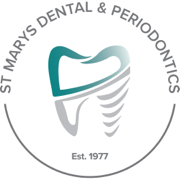Orofacial Pain (OFP) & Temporomandibular Disorders (TMD)
Orofacial pain (OFP) and temporomandibular disorders (TMD) can be debilitating and interfere significantly with daily life.
What is TMD?
TMD, or Temporomandibular Disorder, is a condition that affects the temporomandibular joint and its adjoining muscles. The jaw or temporomandibular joints (TMJ) are located directly in front of your ears (you can feel them moving when you open and close your mouth) and they allow us to move our jaws forwards and sideways.
TMD is complex and can affect anyone at any time, but it is most commonly associated with changes in a person’s emotional state including stress and anxiety, or a history of trauma to the face. TMD usually involves pain or tenderness in the muscles and/or joint that control jaw movement, with the pain sometimes referring beyond these areas. This pain includes jaw pain, jaw clicking, or pain in the face, head or neck.
How do I know if I have TMD? What are the symptoms?
You might also have TMD if you have any of these symptoms:
- Jaw pain
- Popping, grating or clicking of the jaw
- Stiffness in the jaw muscle
- Unable to open your jaw all the way, or your jaw getting “locked” open or closed
- Dislocated jaw
- Headaches or ear aches
- Pain in the face, jaw, or neck
How is TMD managed?
The best way to manage TMD is to use conservative methods that reduce pain and discomfort. These may include heat application, pain relief ointments or medications, muscle relaxants, soft diet or physical therapy.
Sometimes, an occlusal splint is required. This allows your muscles and joints to relax while protecting your teeth – and it can be a much-needed relief for patients struggling with TMD. Occlusal splints are usually worn during sleep but can be worn while awake if clenching or grinding becomes severe.
If symptoms do not improve, further re-evaluation will be necessary. Although rare, severe cases of TMD may need to be managed with bite adjustments or surgical procedures. These are usually a last resort since the results are permanent.
If you suspect that you have OFP/TMD or have more questions, seek professional help from Dr Daniel Tan. He has completed 3 years full-time specialist training in Prosthodontics and is regarded as an expert in the diagnosis and management of OFP & TMD.
Contact us today

